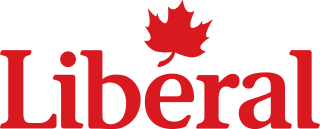
The Liberal Party of Canada is the oldest and longest-serving governing political party in Canada. The Liberals form the current government, elected in 2015. The party has dominated federal politics for much of Canada's history, holding power for almost 69 years in the 20th century—more than any other party in a developed country—and as a result, it is sometimes referred to as Canada's "natural governing party".

The American Federation of Labor (AFL) was a national federation of labor unions in the United States founded in Columbus, Ohio, in December 1886 by an alliance of craft unions disaffected from the Knights of Labor, a national labor union. Samuel Gompers of the Cigar Makers' International Union was elected president at its founding convention and reelected every year, except one, until his death in 1924. The A.F. of L was the largest union grouping in the United States for the first half of the 20th century, even after the creation of the Congress of Industrial Organizations (CIO) by unions which were expelled by the AFL in 1935 over its opposition to industrial unionism. The Federation was founded and dominated by craft unions throughout its first fifty years, after which many craft union affiliates turned to organizing on an industrial union basis to meet the challenge from the Congress of Industrial Organizations (CIO) in the 1940s.

The Communist Party of Canada is a communist political party in Canada founded in 1921 under conditions of illegality. Although it is now a political party without any parliamentary representation, the party's candidates have been elected to the Parliament of Canada, the Ontario legislature, the Manitoba legislature, and various municipal governments across the country. The party has also contributed significantly to trade union organizing and labour history in Canada, peace and anti-war activism, and many other social movements.
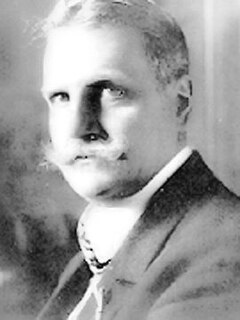
The iron law of oligarchy is a political theory, first developed by the German sociologist Robert Michels in his 1911 book, Political Parties. It asserts that rule by an elite, or oligarchy, is inevitable as an "iron law" within any democratic organization as part of the "tactical and technical necessities" of organization.
A grassroots movement is one which uses the people in a given district, region, or community as the basis for a political or economic movement. Grassroots movements and organizations use collective action from the local level to effect change at the local, regional, national, or international level. Grassroots movements are associated with bottom-up, rather than top-down decision making, and are sometimes considered more natural or spontaneous than more traditional power structures. Grassroots movements, using self-organization, encourage community members to contribute by taking responsibility and action for their community. Grassroots movements utilize a variety of strategies from fundraising and registering voters, to simply encouraging political conversation. Goals of specific movements vary and change, but the movements are consistent in their focus on increasing mass participation in politics. These political movements may begin as small and at the local level, but grassroots politics as Cornel West contends are necessary in shaping progressive politics as they bring public attention to regional political concerns.
There have been various groups in Canada that have nominated candidates under the label Labour Party or Independent Labour Party or other variations from the 1870s until the 1960s. These were usually local or provincial groups using the Labour Party or Independent Labour Party name, backed by local Labour Councils or individual trade unions. There was an attempt to create a national Canadian Labour Party in the late 1910s and in the 1920s, but these were partly successful. The Communist Party of Canada, formed in 1921/22, fulfilled some of labour's political yearnings from coast to coast, and then the Co-operative Commonwealth Federation - Worker Farmer Socialist" was formed in 1932. With organic ties to the organized labour movement, this was a labour party by definition.

The first Socialist Party of Canada (SPC) existed from 1904 to 1925 led by E. T. Kingsley. It published the Western Clarion newspaper.
The Canadian Labour Congress, or CLC is a national trade union centre, the central labour body in English Canada to which most Canadian labour unions are affiliated.
A political organization is any organization that involves itself in the political process, including political parties, non-governmental organizations, advocacy groups and special interest groups. Political organizations are those engaged in political activities aimed at achieving clearly-defined political goals, which typically benefit the interests of their members.
The Amalgamated Clothing Workers of America (ACWA) was a United States labor union known for its support for "social unionism" and progressive political causes. Led by Sidney Hillman for its first thirty years, it helped found the Congress of Industrial Organizations. It merged with the Textile Workers Union of America (TWUA) in 1976 to form the Amalgamated Clothing and Textile Workers Union (ACTWU), which merged with the International Ladies' Garment Workers' Union in 1995 to create the Union of Needletrades, Industrial and Textile Employees (UNITE). UNITE merged in 2004 with the Hotel Employees and Restaurant Employees Union (HERE) in 2004 to create a new union known as UNITE HERE. After a bitter internal dispute in 2009, the majority of the UNITE side of the union, along with some of the disgruntled HERE locals left UNITE HERE, and formed a new union named Workers United, led by former UNITE president Bruce Raynor.
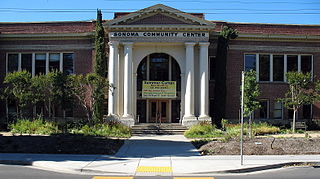
Community centres or community centers are public locations where members of a community tend to gather for group activities, social support, public information, and other purposes. They may sometimes be open for the whole community or for a specialized group within the greater community. Community centres can be religious in nature, such as Christian, Islamic, or Jewish community centres, or can be secular, such as youth clubs.
Community unionism, also known as reciprocal unionism, refers to the formation of alliances between unions and non-labour groups in order to achieve common goals. These unions seek to organize the employed, unemployed, and underemployed. They press for change in the workplace and beyond, organizing around issues such as welfare reform, health care, jobs, housing, and immigration. Individual issues at work are seen as being a part of broader societal problems which they seek to address. Unlike trade unions, community union membership is not based on the workplace- it is based on common identities and issues. Alliances forged between unions and other groups may have a primary identity based on affiliations of religion, ethnic group, gender, disability, environmentalism, neighborhood residence, or sexuality.
The New American Movement (NAM) was an American New Left socialist and feminist political organization established in 1971.

Rules for Radicals: A Pragmatic Primer for Realistic Radicals is a 1971 book by community activist and writer Saul D. Alinsky about how to successfully run a movement for change. It was the last book that Alinsky wrote and was published shortly before his death in 1972. His goal for the Rules for Radicals was to create a guide for future community organizers, to use in uniting low-income communities, or "Have-Nots", in order for them to gain social, political, legal, and economic power. Within it, Alinsky compiled the lessons he had learned throughout his experiences of community organizing from 1939–1971 and targeted these lessons at the current, new generation of radicals.
Socialism in Canada has a long history and is, along with conservatism and liberalism, a political force in Canada.

The Revolutionary Communist Party of Canada, or RCP Canada, or the PCR-RCP is a revolutionary communist party oriented around Marxism-Leninism-Maoism. The creation of the organizational stage of the Party was adopted at what was called the Revolutionary Communist Conference, which was held in Montreal, Quebec in November 2000 by activists and former members of the labour union movements and youth organizations of the 1960s, 1970s and 1980s, who felt that the revolutionary situation in Canada warranted the creation of a Party dedicated to a communist revolution. The party was initially called the Revolutionary Communist Party. At this conference, participants adopted the Party's first Draft Programme. Because of the location of the conference, the majority of the founding members were French-speaking Quebecers, and the Party began an extensive effort to reach out to the rest of Canada, starting with the Canadian Revolutionary Congress held in November 2006 in Toronto. It is not recognized as a political party by Elections Canada, because the party rejects what it calls the "bourgeois electoral system" and doesn't seek recognition by the State.
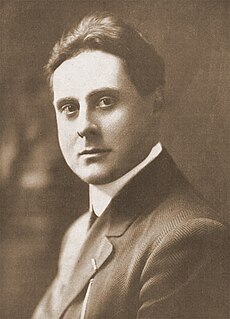
Frank Bohn was an advocate of industrial unionism who was a founding member of the Industrial Workers of the World. From 1906 to 1908 he was the National Secretary of the Socialist Labor Party of America, before leaving to join forces with the rival Socialist Party of America. After World War I his politics became increasingly nationalistic and he left the labor movement altogether.
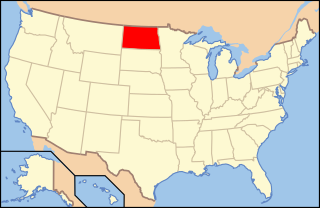
The Socialist Party of North Dakota was the semi-autonomous affiliate of the Socialist Party of America established in 1902 in the state of North Dakota. The organization had roots in a socialist club founded by Norwegian immigrants in Fargo in 1900. One of the party's professional organizers, a former farmer named Arthur C. Townley, abandoned the group in 1915 to establish a new organization called the Non-Partisan League. The rapid growth of this organization spelled the demise of the official Socialist organization in the state.

The Communist Party of Canada (Marxist–Leninist) is a Canadian federal political party founded by Hardial Bains in 1970. The CPC (ML) has been registered with Elections Canada as the Marxist–Leninist Party of Canada since 1974 as the party is prohibited from using the Communist Party name in Canadian elections to avoid confusion among voters. The party developed separately and independently from the Communist Party of Canada (CPC) with its origins among students and intellectuals in Canada during the 1960s. After a period of alignment with Maoism and China, the CPC (ML) pursued a pro-Albanian line until the early 1990s when it adopted a pro-Cuba position.

The Congress of Industrial Organizations (CIO) was a federation of unions that organized workers in industrial unions in the United States and Canada from 1935 to 1955. Created in 1935 by John L. Lewis, who was a part of the United Mine Workers (UMW), it was originally called the Committee for Industrial Organization but changed its name in 1938 when it broke away from the American Federation of Labor. It also changed names because it was not successful with organizing unskilled workers with the AFL.













